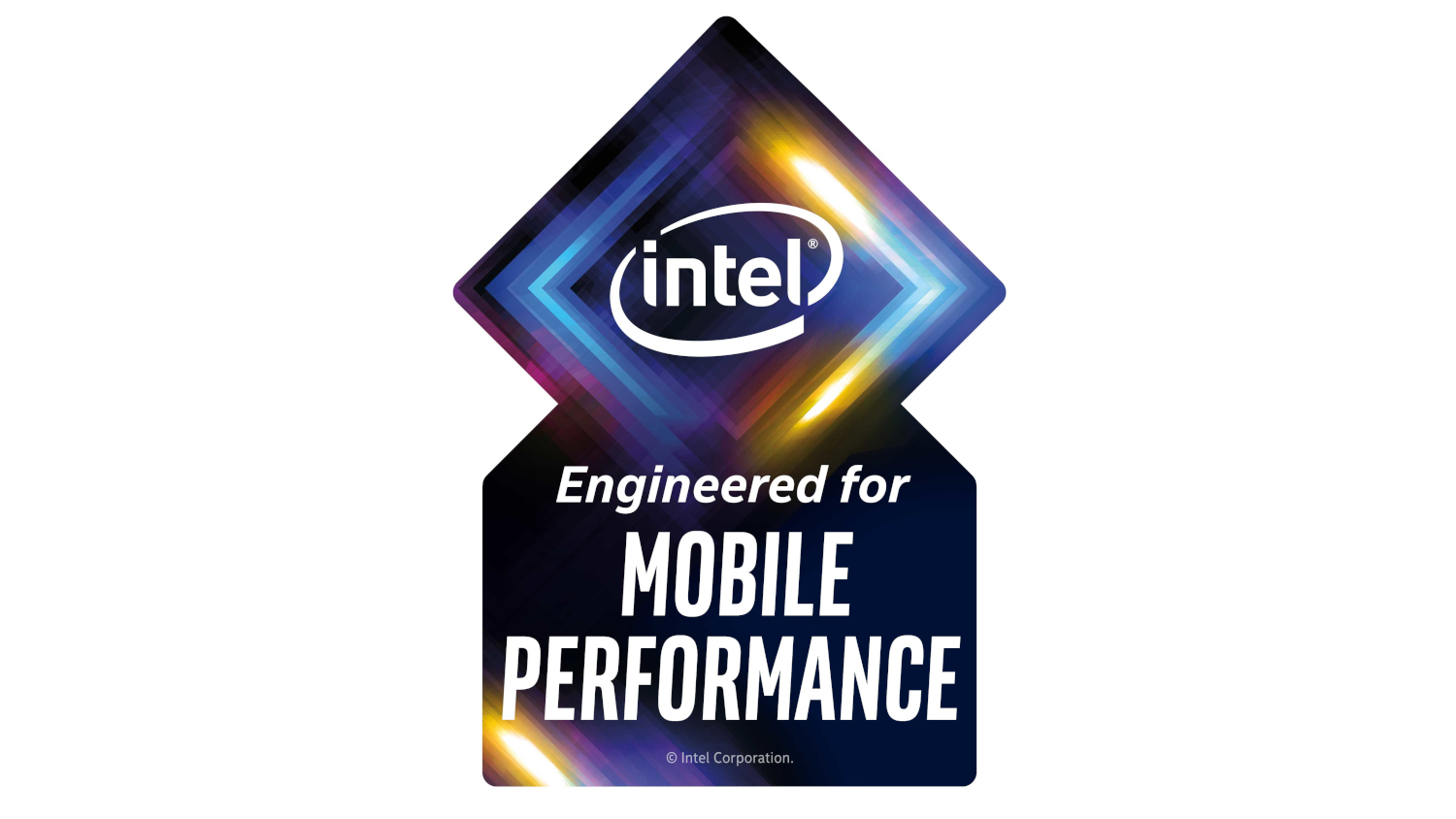Intel's Project Athena Gets a Seal of Approval
Intel today announced that devices introduced as part of its Project Athena initiative will be given new “Engineered for Mobile Performance" stickers. (Alright, it's officially a "visual identifier," but let's call a sticker a sticker.) The first devices to feature this designation are currently available from Dell and HP; other manufacturers are set to release their own Project Athena-sanctioned laptops sometime this year.
Consumers are no stranger to Intel's so-called visual identifiers. People have peeled off stickers letting them know a device features an Intel processor, meets the company's requirements for the Ultrabook designation, or boasts some other designation. Having another one devoted to Project Athena--although it doesn't even mention the initiative by name--will just make it easier to tell laptop categories apart.
"Research suggests that consumers often rely on visual signals and retail displays to inform their buying decisions," the company said in today's announcement. "Testing of the identifier and its messaging showed that it grabbed people’s attention in stores and online and indicates how the laptops are the result of engineering collaborations specifically designed for on-the-go PC experiences."
The company said that "Engineered for Mobile Performance" indicator will debut in marketing for the Dell XPS 13 2-in-1, HP Elitebook 1040 and HP Elitebook 830 over the coming weeks. Other devices from Acer, Asus, Dell, HP, Lenovo and Samsung will be adorned with the new sticker when they launch during "the holiday season." We expect the Project Athena initiative to stick around through at least 2020, too.
Hopefully this "Engineered for Mobile Performance" serves its purpose and helps consumers find the right laptop. Enthusiasts probably don't need to know a laptop is part of Project Athena to figure out if they'll want it. That's what spec sheets, benchmarks and (our) reviews are for. The sticker isn't for that segment; it's for people overwhelmed by technical information because it's all Greek to them.
What's Project Athena?
So what's the point of Project Athena? Intel announced the initiative at CES 2019 to signal to manufacturers that it wants to focus on performance and responsiveness moving forward. The company said today it has requirements across "six innovation vectors." Project Athena devices have to meet: "instant action, performance and responsiveness, intelligence, battery life, connectivity and form factor."
Intel tests every device seeking Project Athena certification to make sure they perform as expected. (Although it's careful to note that it "does not guarantee performance of any third-party system," which kind of undermines that claim but is likely for legal purposes.) The company shared the first target specifications for Project Athena in May. An overview is available via the company's fact sheet.
Get Tom's Hardware's best news and in-depth reviews, straight to your inbox.

Nathaniel Mott is a freelance news and features writer for Tom's Hardware US, covering breaking news, security, and the silliest aspects of the tech industry.
-
derekullo AMD finally catches up to Intel and now Intel now saysReply
"it wants to focus on performance and responsiveness moving forward "
Which almost implies an admission of guilt that before this time they weren't focused on performance and responsiveness and were just coasting along hoping nobody would catch up.
Or am I reading into this too much? -
justin.m.beauvais So... Centrino 2.0?Reply
This feels more like Intel scrambling to get some kind of legitimacy put on their laptops as if a "guarantee" will sway consumers. Like Intel saying "Well, you can get a Ryzen laptop, but AMD isn't certifying that those laptops are giving you the best performance that the hardware is capable of, but Intel will. Buy our certified products for peace of mind."... which we all know is a load of crap. On top of that I don't expect low end laptops to have this badge. It is going to be used as a ploy to up-sell to less savvy buyers.
Thinking about it... Intel should just go back to Centrino. It was better.
